
Filter News
Area of Research
- Biology and Environment (15)
- Biology and Soft Matter (1)
- Computational Biology (1)
- Computer Science (1)
- Electricity and Smart Grid (1)
- Energy Science (26)
- Functional Materials for Energy (1)
- Fusion and Fission (8)
- Materials (15)
- National Security (8)
- Neutron Science (7)
- Nuclear Science and Technology (1)
- Supercomputing (13)
News Topics
- (-) Artificial Intelligence (15)
- (-) Fusion (9)
- (-) Grid (13)
- (-) Mercury (2)
- (-) Physics (12)
- (-) Summit (7)
- (-) Transportation (12)
- 3-D Printing/Advanced Manufacturing (13)
- Advanced Reactors (4)
- Big Data (11)
- Bioenergy (22)
- Biology (30)
- Biomedical (6)
- Biotechnology (3)
- Buildings (16)
- Chemical Sciences (15)
- Clean Water (5)
- Composites (4)
- Computer Science (26)
- Coronavirus (9)
- Critical Materials (5)
- Cybersecurity (9)
- Element Discovery (1)
- Energy Storage (26)
- Environment (40)
- Exascale Computing (9)
- Fossil Energy (1)
- Frontier (10)
- High-Performance Computing (16)
- Hydropower (8)
- Irradiation (1)
- Isotopes (4)
- ITER (2)
- Machine Learning (10)
- Materials (37)
- Materials Science (19)
- Microscopy (14)
- Nanotechnology (9)
- National Security (17)
- Neutron Science (16)
- Nuclear Energy (11)
- Partnerships (8)
- Polymers (5)
- Quantum Computing (7)
- Quantum Science (9)
- Security (4)
- Simulation (6)
- Space Exploration (4)
Media Contacts

Nine student physicists and engineers from the #1-ranked Nuclear Engineering and Radiological Sciences Program at the University of Michigan, or UM, attended a scintillation detector workshop at Oak Ridge National Laboratory Oct. 10-13.

As the United States shifts away from fossil-fuel-burning cars and trucks, scientists at the Department of Energy’s Oak Ridge and Argonne national laboratories are exploring options for another form of transportation: trains. The research focuses on zero-carbon hydrogen and other low-carbon fuels as viable alternatives to diesel for the rail industry.
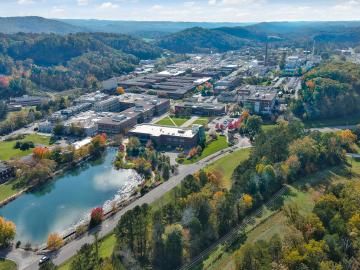
Several significant science and energy projects led by the ORNL will receive a total of $497 million in funding from the Inflation Reduction Act.
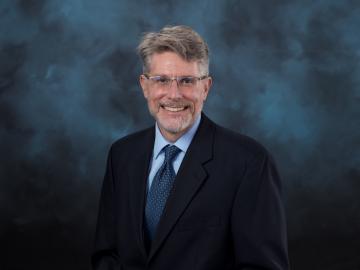
ORNL appointed Peter Thornton as director of its Climate Change Science Institute, or CCSI, effective November 1, 2022.
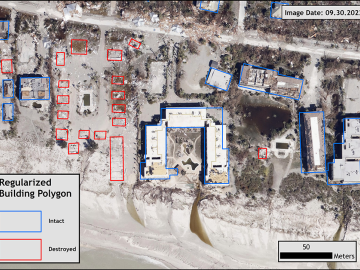
Over the past seven years, researchers in ORNL’s Geospatial Science and Human Security Division have mapped and characterized all structures within the United States and its territories to aid FEMA in its response to disasters. This dataset provides a consistent, nationwide accounting of the buildings where people reside and work.
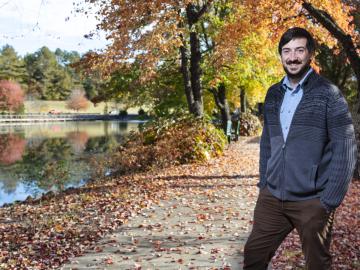
Matthew Craig grew up eagerly exploring the forest patches and knee-high waterfalls just beyond his backyard in central Illinois’ corn belt. Today, that natural curiosity and the expertise he’s cultivated in biogeochemistry and ecology are focused on how carbon cycles in and out of soils, a process that can have tremendous impact on the Earth’s climate.

U.S. Secretary of Energy Jennifer Granholm visited Oak Ridge National Laboratory today to attend a groundbreaking ceremony for the U.S. Stable Isotope Production and Research Center. The facility is slated to receive $75 million in funding from the Inflation Reduction Act.

Marc-Antoni Racing has licensed a collection of patented energy storage technologies developed at ORNL. The technologies focus on components that enable fast-charging, energy-dense batteries for electric and hybrid vehicles and grid storage.
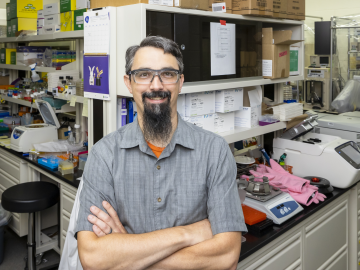
Scientists working on a solution for plastic waste have developed a two-step chemical and biological process to break down and upcycle mixed plastics into valuable bioproducts.

Researchers at ORNL recently demonstrated a new technology to better control how power flows to and from commercial buildings equipped with solar, wind or other renewable energy generation.


